I call my blog A Poet’s Nanaimo and while every blog isn’t about Nanaimo and is more about my observations generally, the events of a few weeks ago appear to fit.
Victoria-based poet Lorna Crozier who has read on every continent except Antarctica read at White Sails Brewing in Nanaimo on November 7th. The place was standing room only whether it was for the poetry or the beer or a combination of both.
I don’t remember ever seeing such a huge crowd for a poetry reading. People were there, mostly from Vancouver Island University (VIU), to support Lorna who is the Ralph Gustafson Distinguished Poetry Chair for 2019, and VIU student Aislinn Cottell who also read from her work.
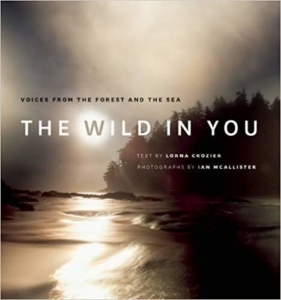 A popular book at the book table that evening was one of the books Lorna read from: The Wild in You: Voices from the Forest and the Sea with text by Lorna and photographs by Ian McAllister (Greystone Books, 2015).
A popular book at the book table that evening was one of the books Lorna read from: The Wild in You: Voices from the Forest and the Sea with text by Lorna and photographs by Ian McAllister (Greystone Books, 2015).
The next evening, as is the tradition, Lorna gave the Ralph Gustafson lecture. This is the 20th anniversary of the Ralph Gustafson series which began with Patricia Young as the first recipient in 1999 followed by Susan Musgrave, Gary Geddes and Patrick Lane, Lorna’s husband, in 2002, and many more since.
Lorna began her talk by reading “The Underworld” from What the Soul Doesn’t Want (Freehand Books, 2017). The poem ends with these lines:
What makes you inconsolable is the silence.
No wind in leaves. No grass speaking.
The shadows are more than shadows.
And there is a lot of waiting.
Only one doctor and all these cities of the dead.
In an article in the Nanaimo News Bulletin, Lorna said: “I think if you don’t show the flaws, if you don’t look into the shadows and dig into the darkness, then you’re writing stuff that is in danger of being Hallmark greeting cards and being shallow instead of trying to go for what poetry tries to get at and that’s the great unknown and the great disturbing and all of those things that poetry wrestles with.”
Lorna thinks every occasion ought to begin with a poem: dinner, city council – I agree! She noted that Nanaimo’s poet laureate Tina Biello was in the VIU audience. Tina has read poetry at city council meetings including at the inauguration of the newly elected members to Nanaimo’s city council.
Stanzas are rooms or stopping places and Lorna’s talk was in fifteen stanzas with those stopping places signalled by a poem, mostly from her book What the Soul Doesn’t Want.
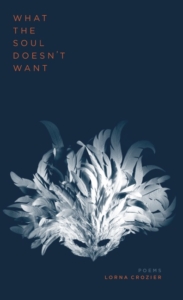 Being a white professor emerita (from the University of Victoria), lessens the risk, Lorna said. There are many writers in the world who have risked their lives, been imprisoned or exiled from their countries when they published their work. Lorna focused on the personal, her own life, with examples from other writers.
Being a white professor emerita (from the University of Victoria), lessens the risk, Lorna said. There are many writers in the world who have risked their lives, been imprisoned or exiled from their countries when they published their work. Lorna focused on the personal, her own life, with examples from other writers.
The Ralph Gustafson lectures are published by VIU in beautiful chapbooks. That means that you’ll get to read the whole of Lorna Crozier’s talk, probably next November when the chapbook will be available. In the meantime, what follows are a few highlights noted in my notebook during Lorna’s lecture.
Why fear what you write, no one is listening anyway Margaret Atwood said!
Metaphor is poetry’s home. Poetry: the art of the fewest words possible. Akin to silence.
Rainer Maria Rilke wrote: “Place your hands on the earth.” Lorna said, as she’s from a northern country, “Place your hands on the ice.”
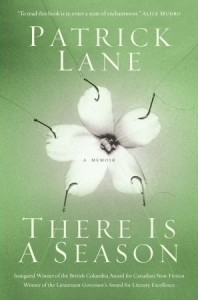 Patrick Lane, in his memoir There is a Season (McClelland and Stewart, 2004), describes writing “at the tiny kitchen table in front of his trailer” after his wife and three children were in bed.
Patrick Lane, in his memoir There is a Season (McClelland and Stewart, 2004), describes writing “at the tiny kitchen table in front of his trailer” after his wife and three children were in bed.
“It was 1960, the year I began writing poetry,” Patrick wrote. “I had no teachers, no mentors, no education beyond high school, but I had what all artists need and that was an obsessive and total commitment to the voice I heard inside me.”
Rilke wrote from Paris about art and about having been in danger. I write out of that sense of danger, Lorna said.
She looks for a melody in a poem and sometimes she sees the poet as a snake charmer. We charm what haunts us. She mentioned “an unflinching fidelity to language” and, poems spark a connection between living things and a link to the dead. Poetry is body work, mind work, soul work.
Sometimes there is risk in content, in a poet telling her truth saying: This is who I am. In a book of John Berger’s, he received advice from his dead mother about telling the truth of his being. You may dig up things others have buried. There is a set of rules you forge for yourself.
The American writer Annie Dillard has said she promised to take out anything her family objected to in her writing. Lorna said, in the past she didn’t follow Annie’s advice. She loved her mother but didn’t want her beside her when she wrote.
The poem my finger traces
as if I’m writing words in air
insists, “Something I’ve not done
is following me.”
from “Reading Merwin”
Many years ago, when Carol Shields asked Lorna to contribute to the anthology, Dropped Threads, Lorna contributed an essay about her father’s addiction. “My father was a drunk,” it began. The insistence on silence severely damaged her she said.
Lorna hadn’t spoken to her mother in a couple of weeks as she had been travelling and when her mother called her, she told Lorna: “You’ve done a terrible thing.” As it turned out, a lay minister at the church Lorna’s mother had attended for several decades, spoke about the essay that Lorna had written. Her mother’s well-being in her community, Lorna said, was jeopardized.
Some people blamed the minister for sharing the story but Lorna said it wasn’t the minister’s fault, it was mine.
She read a poem entitled “Lilac” that became a poignant, and startling, pause before she continued her talk.
The colour the skin recalls
after some hurt has happened, the scent
the body folds in its shadows, almost
sickening when the blossoms brown.
from “Lilac”
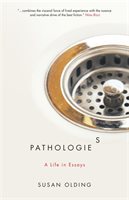 Lorna referred to Canadian writer Susan Olding who wrote an essay about her daughter who was adopted in China. At a reading Susan gave at a writers’ conference in Vermont, she was praised for her essay. I’m reading her book, Pathologies: A Life in Essays (Freehand Books, 2008) now and in an essay entitled “Mama’s Voices,” she describes the experience of her stomach clenching and then shaking as she was reading parts of the essay.
Lorna referred to Canadian writer Susan Olding who wrote an essay about her daughter who was adopted in China. At a reading Susan gave at a writers’ conference in Vermont, she was praised for her essay. I’m reading her book, Pathologies: A Life in Essays (Freehand Books, 2008) now and in an essay entitled “Mama’s Voices,” she describes the experience of her stomach clenching and then shaking as she was reading parts of the essay.
Susan writes: “Afterwards, I look up from my pages to find myself surrounded. Editors of journals press their cards into my hand, inviting submissions. Faculty members offer congratulations.”
In the days that followed, conference attendees would talk to her in the cafeteria line about similar experiences and challenges to those she had with her adopted daughter. In class though, she was surprised by the comments from her classmates. Comments like “It’s not your story. It’s your daughter’s story” and “You shouldn’t write this. It’s too risky for your child.”
There are a few essays about Olding’s daughter Maia in Pathologies including “At Lingyin Si” which is in the city of Hangzhou where women go to pray for fertility. Lorna referred to Susan Olding’s after-writing experiences as the “incendiary consequences.”
Broadview Press, the publisher of Pathologies), describes the book this way: “In a suite of essays forming the emotional climax of the book, Olding bravely recounts the adoption of her daughter, Maia, from an orphanage in China, and tells us the story of Maia’s difficult adaptation to the unfamiliar state of being loved.”
The poet is doomed to time, Lorna said and recalled reading two of Proust’s seven volumes. Does it take more courage when you’re older, she wondered. It’s uncharted territory. (For herself, she probably meant, and in terms of what’s available in the work of older poets.)
May I have the audacity to open my mouth and wail is her response when people complain about aging rock stars like Mick Jagger still on stage or poets they consider long in the tooth. As for the list that “should” apply to older people including having ‘comportment’, she says: “Fuck that.”
Eavan Boland, the Irish poet, in her poem, “A Woman Painted on Leaf,” wrote: “I want a poem / I can grow old in.”
Thirty years ago, Lorna wrote “The Penis Poems.” She received hate mail about them and people walked out when she gave a reading at the University of Toronto. She had been exploring her own heterosexuality and there were those who thought she could not be a feminist if she was involved with a man. In more recent years she wrote “My Last Erotic Poem” which was an instant hit. She wasn’t as hopeless or decrepit as she made it out to be in her poem, she said.
You can see Lorna deliver her poem at the Vancouver Writers Festival in 2007 on You Tube here.
Poet Dorothy Livesey said “I’m not just bones and crockery.” Dorothy stopped doing readings in her sixties as she didn’t want people to look at her. Our thin skin bruises easily, perhaps metaphorically as well, Lorna said.
She asked herself the question, do I have something new to bring to the table? I must find ways to disrupt my complacency.
These are the risks I take, Lorna said at the end of her talk: terror and astonishment. My fierce and only life.
What the Soul Wants
A horse made out of rain (it doesn’t need a blacksmith).
A fret of dragonflies, the tin glass of their wings.
A yellow bicycle. Outside the door
a tall coffee can full of sand for the soul’s gritty habits.
A place where the trees are happy. How can you tell?
It’s the smell they give back to the world.
Self-Centred
My husband is going blind.
Soon no one will say
I am beautiful
In my new dress,
my red shoes.
Or will he say it more often,
old woman that I am,
Now that he can’t see?


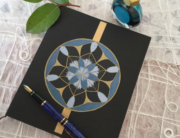

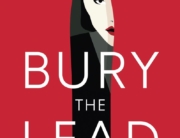
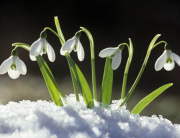
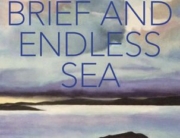
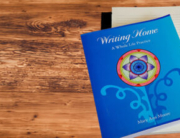
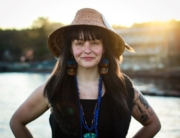
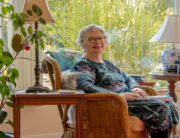
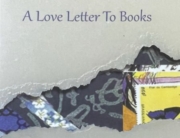
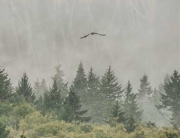
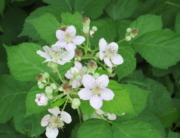
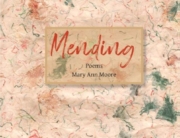
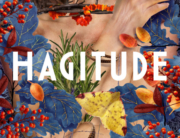
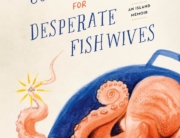
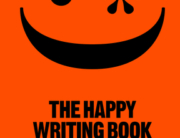

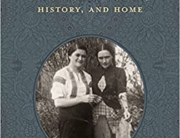
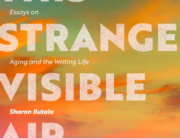
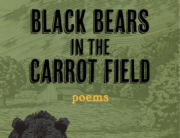
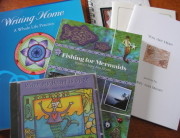
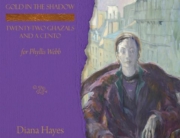
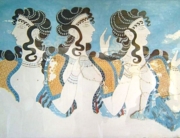

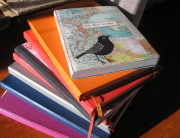
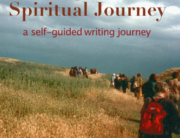
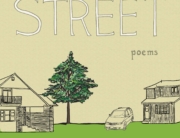
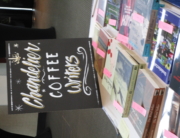
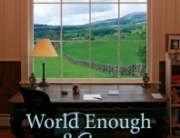

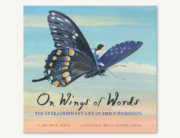
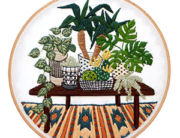
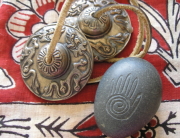
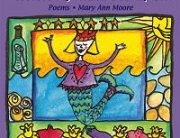
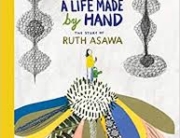
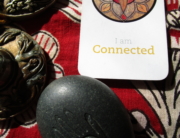
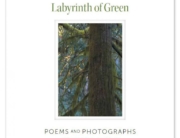

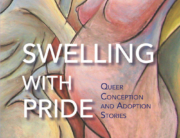
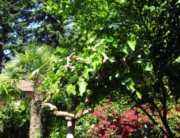
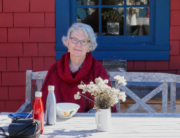
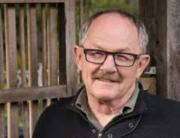
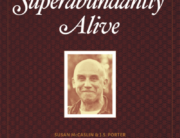
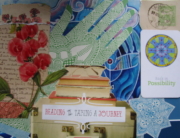
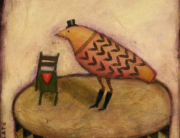
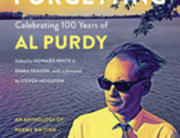
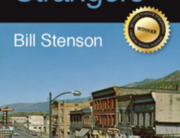
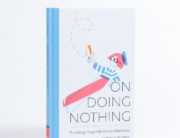
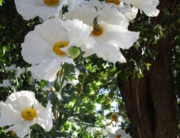
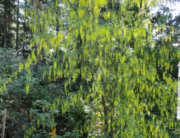
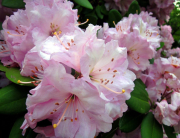
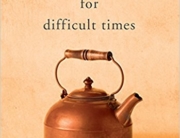
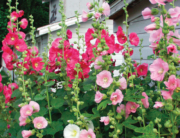
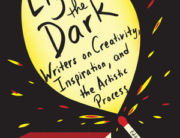
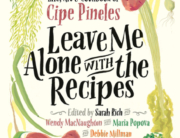
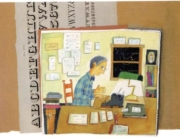

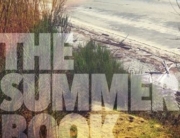
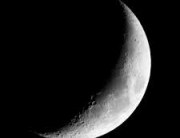

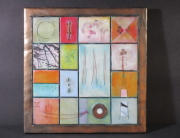
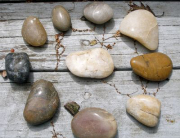
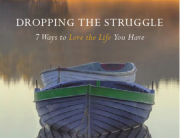
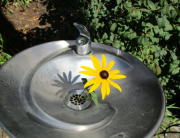
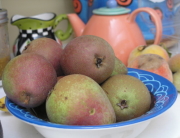
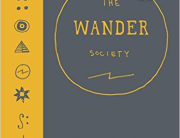
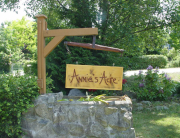
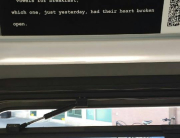
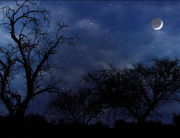
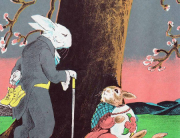
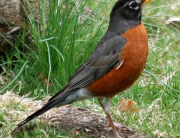
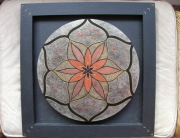

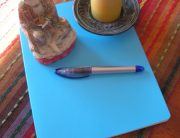

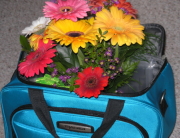
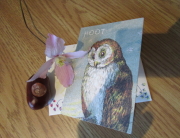
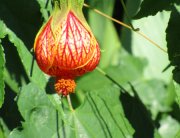
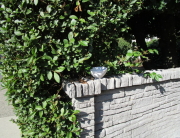
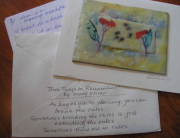
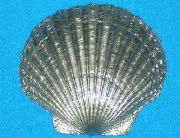
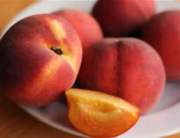
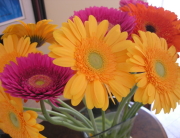

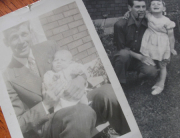
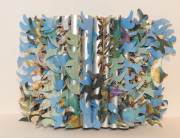


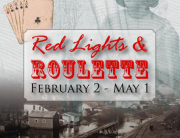
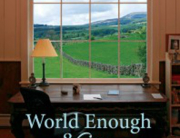
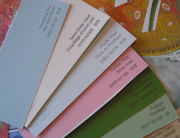
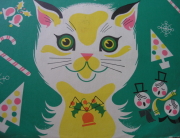
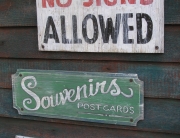

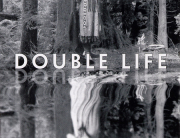

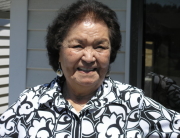
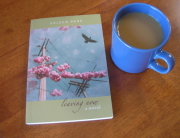

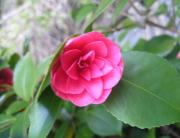

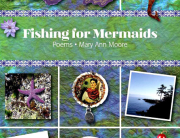
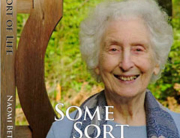
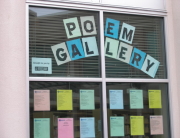
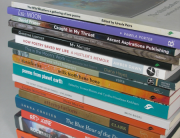

I found this very interesting. And encouraging! Thank you! I sure appreciate your artistry and thoughtfulness in researching, crafting, and presenting this.
You’re welcome Jan! And thank you for your kind comments. So glad you found it encouraging.
This is such a beautiful posting, Mary Ann. Thank you for sharing the event with your readers. I so admire Lorna and Patrick, and loved hearing their words through you.
Blessings,
Rosemary
So many of us love and admire Lorna and Patrick. Blessings to you, Rosemary.
Love, Love, love this, Mary Ann… Reposted on my facebook page where I’m sure it will find sweet resonance with many friends and colleagues!
Thanks for this interesting summary, Mary Ann. I heard Lorna read in Victoria just before she came to Nanaimo and had planned to attend her sessions here but somehow twisted my knee while away and wasn’t able to be there. I appreciate your providing a good session of the events and also some interesting books and links to explore. You do a great job with this website! Thank you.